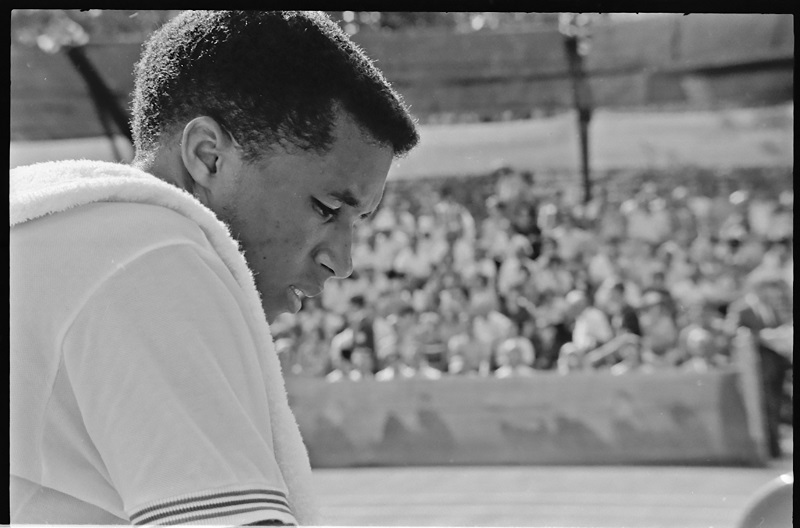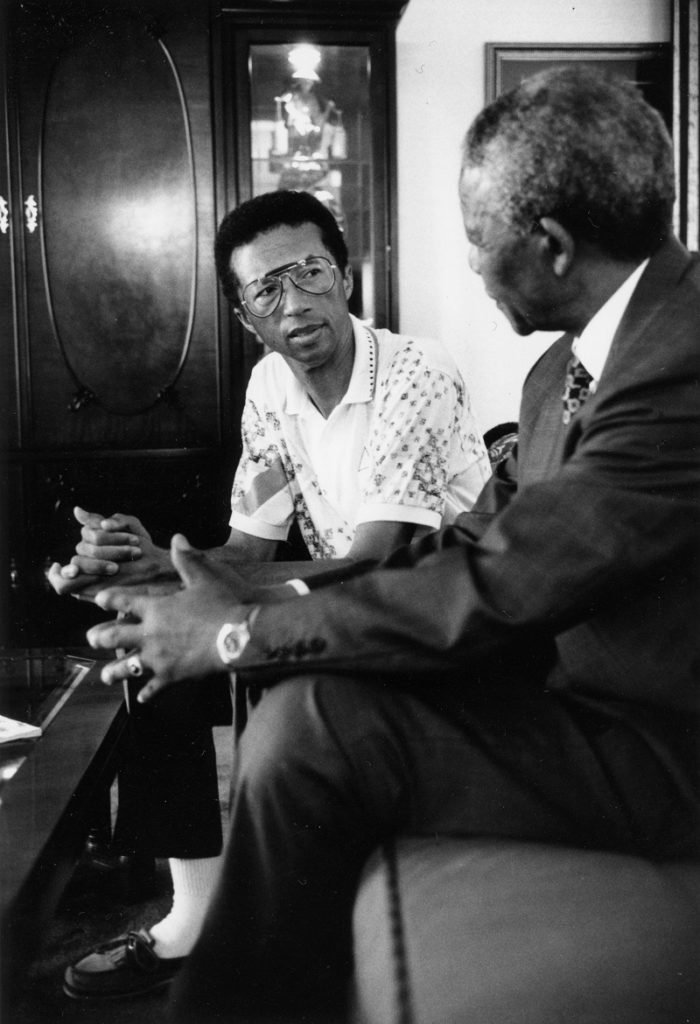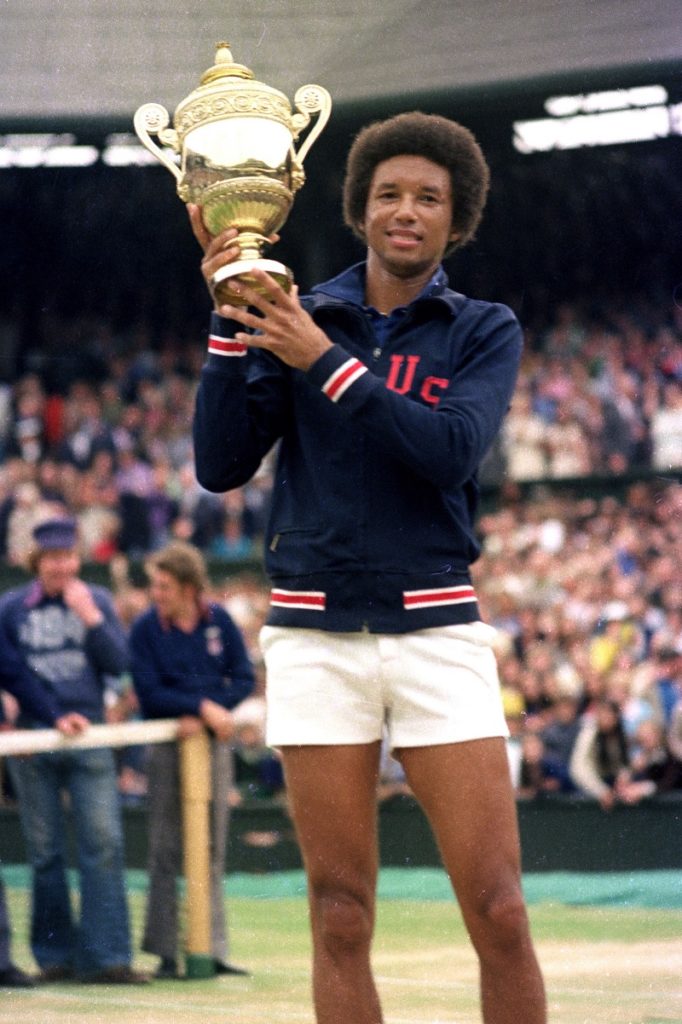If there ever was an individual that was considered the ripest of subjects for a documentary, it is Arthur Ashe. He was a tennis star—and member of his sport’s hall of fame—Ashe emerged as a triumphant voice for his people and human rights in general over the course of his life before he perished in 1993 from AIDS that he received from a blood transfusion.
The film explores the iconic legacy of a man who transcended sports greatness to make a huge difference in people’s daily lives. A story this powerful needed two directors. What it got from Emmy winner Rex Miller and Oscar-nominated and fellow Emmy winner Sam Pollard was twice the devotion to the subject and a doc that terrifically (and engagingly) lays out the facts of a man’s life but does so with an utter adoration that comes through every millisecond of Citizen Ashe.
Who they lined up to add their insight, personal experiences with the man, and his larger societal impact, is a who’s-who of tennis and cultural analysis. These are people who knew him, played against him, befriended him and all adds priceless layers of authenticity and adoration for the man. They include a bevy of brilliant folks, from fellow trailblazer Billy Jean King, John McEnroe to Johnnie Ashe, Arthur’s brother, and Jeanne Moutoussamy-Ashe, Arthur’s widow.
What it all adds up to is extraordinary. Citizen Ashe is a simultaneous salute and enlightening education. For example, I cannot think of Ashe and not think about his work on Civil Rights and ultimately AIDS awareness and drive for research. What was not known was how he was slow to commit to being political in any way. He, for a long time, felt that sports and politics or societal issues should remain separate. Then, no spoilers here, but something occurred, and it was like a switch flipped. Ashe was now 100-percent behind using his platform and his fame to try to move the needle for fellow African Americans and as an extension of that—humans all over the world who are oppressed or living in fear.
Of particular power is how Miller and Pollard document Ashe’s relationship with Nelson Mandela. That embodies and is indicative of that try to make the world a better place spirit that would grow to define the tennis great. He famously said he wanted to “use what he had to do what he could” to speak up about race issues, even if it meant risking his career. Mandela’s actions were garnering headlines in America, and it was Ashe who would continually remind the American people (and those of the world) of the South African’s life and struggles to be free.
As a man, Ashe is also impeccably painted as someone who was selfless and…
As a tennis player, he emerged from the streets of Richmond, Virginia, and was the rarest of color in a sea of lily-white players and even their outfits—what with their matching white polos and white tennis shorts. Like many other black athletes at the time and previously, he was initially content just to be asked to be at the table, even if he had more than earned that spot with his uncanny abilities. That aspect of the life of Arthur Ashe is astonishingly put together by Pollard and Miller. It would be easy to focus solely on how this man changed the world and made it his life’s work to improve the lives of others. But the filmmakers’ chronicle of how Ashe rose to the top of the tennis world alone would have made for an intriguing documentary.
A great sports doc pushes all the right buttons for this writer, such as last year’s The Last Dance and its look at the Chicago Bulls and Michael Jordan. There also is a love for non-fiction films that shine a light on those who made a difference in this world, and lately, it seems like we’ve been blessed with so many amazing ones—from Mayor Pete to John Lewis: Good Trouble and The Way I See It (about President Obama and President Reagan photographer Pete Souza).
Citizen Ashe is the best of both those worlds and as such, it is riveting, illuminating, emotively moving and grippingly entertaining.
Grade: A




